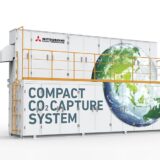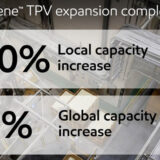
ExxonMobil and Pertamina partner on carbon capture and storage
ExxonMobil and Pertamina, Indonesia’s state-owned energy company, have entered into a joint study agreement to explore the large-scale implementation of lower-emissions technologies, including carbon capture and storage (CCS) and hydrogen production.
This agreement builds on a memorandum of understanding signed at COP 26 in Glasgow, Scotland, and aims to support Indonesia’s 2060 net-zero emissions ambition. The partnership between ExxonMobil and Pertamina spans decades, with this latest collaboration marking a significant step forward in their efforts to reduce emissions in hard-to-decarbonise sectors.
The joint study agreement was signed by Pertamina President Director and CEO Nicke Widyawati and ExxonMobil Indonesia President Irtiza Sayyed. The signing ceremony was witnessed by Indonesia’s Coordinating Minister for Maritime and Investment Affairs, Pak Luhut, and Exxon Mobil Corporation Senior Vice President, Jack Williams.
“This is another step forward for both companies, and it positions Indonesia to play a leading role in supporting the reduction of emissions from hard-to-decarbonise sectors,” said Dan Ammann, president of ExxonMobil Low Carbon Solutions. “Expansion of carbon capture and storage in Southeast Asia would support a lower carbon future. Governments, the private sector and communities will need to work hand-in-hand to make this a reality.”
ExxonMobil Low Carbon Solutions is dedicated to commercialising lower-emission technologies and supporting global emission-reduction efforts. The business initially focuses on point-source emissions, capturing CO₂ from industrial activities and injecting it into deep underground geological formations for secure and permanent storage.
Carbon capture and storage is a proven technology that can significantly reduce emissions in high-emission sectors such as manufacturing, power generation, refining, petrochemicals, steel, and cement. Broad deployment of CCS could create new industries, leading to job creation and economic growth.
Additionally, ExxonMobil is investing in biofuels and hydrogen to scale these lower-emissions technologies for sectors that are difficult to decarbonise. With more than 30 years of experience in capturing CO₂, ExxonMobil holds an equity share of about one-fifth of the world’s carbon capture and storage capacity, approximately nine million metric tons per year.





.png)






